SEO Myths Debunked: What Works in 2024
In an era where digital presence is not just an advantage but a necessity, Search Engine Optimisation (SEO) emerges as a cornerstone of online strategy for businesses and content creators alike. As we step into 2024, understanding and leveraging the true power of SEO is more critical than ever. However, the path to mastering SEO is fraught with myths and misconceptions, often leading even the most earnest marketers astray. This article aims to dispel these myths and shine a light on what really works in the current landscape of search engine rankings.
SEO, at its core, is about enhancing a website’s visibility in the organic (non-paid) search engine results. It encompasses a variety of strategies and tactics aimed at increasing the quantity and quality of traffic to your website through organic search engine results. The allure of ranking higher on search engine result pages (SERPs) is clear: it means more visibility, credibility, and, ultimately, traffic. This traffic is not just about numbers, but about bringing relevant, engaged visitors to your site who are likely to convert into customers or followers.
The importance of SEO in an increasingly digital world cannot be overstated. It’s a critical component of digital marketing that no business can afford to overlook. With the majority of consumers and businesses starting their buying journey online, appearing prominently on search engines like Google, Bing, or Yahoo can make or break a business. It’s not just about being seen; it’s about being seen by the right people at the right time.
However, as essential as SEO is, it’s also one of the most misunderstood and fast-evolving fields in digital marketing. What worked yesterday might not work today, and what works today might be obsolete tomorrow. Search engines continuously refine their algorithms to deliver more relevant, high-quality results to users. This means the tactics and strategies that will get you to the top of SERPs need regular evaluation and adjustment.
Moreover, the proliferation of SEO myths and misconceptions can lead businesses down the wrong path. Many continue to employ outdated practices or follow advice that’s no longer valid, wasting time and resources at best, and harming their website’s ranking at worst. It’s crucial, therefore, to continually update your SEO knowledge and understand the difference between enduring strategies and outdated myths.
As 2024 unfolds, staying ahead in SEO means embracing a culture of learning and adaptation. It involves understanding the nuances of current algorithms, the impact of new technologies, and the ever-changing behaviour of online searchers. Whether you’re a small local business, a burgeoning startup, or a large corporation, your online success depends heavily on how well you adapt to the dynamic world of SEO. In the following sections, we’ll debunk common SEO myths and lay out the strategies that are truly effective, helping you to navigate the complexities of SEO and emerge with a clearer, more effective approach for your business or brand.
SEO Myths Debunked
As the digital landscape constantly evolves, so do the strategies for effective Search Engine Optimisation (SEO). However, amidst these changes, myths and misconceptions about what works and what doesn’t in SEO persist, often leading businesses and content creators down unproductive or harmful paths. Let’s debunk some of the most persistent SEO myths as of 2024, clearing the way for effective and ethical strategies.
Myth 1: More Links Equals Higher Rankings
- Debunked: Once, the quantity of links was a dominant factor, but today, the quality, relevance, and context of links far outweigh sheer numbers. Search engines now prioritize the value and trustworthiness of the linking sites.
Myth 2: Keyword Stuffing Boosts Rankings
- Debunked: Gone are the days when filling a page with keywords could trick search engines into ranking it higher. Modern algorithms are sophisticated and penalize such practices. Today, content must be relevant, well-written, and use keywords judiciously and contextually.
Myth 3: SEO is a One-Time Task
- Debunked: SEO isn’t set-and-forget; it’s an ongoing process. Search engines continuously update their algorithms, and competitors evolve their strategies. Continuous monitoring, updating content, and refining SEO tactics are necessary to maintain and improve rankings.

Myth 4: Social Media Doesn’t Affect SEO
- Debunked: While social media signals don’t directly influence search rankings, there’s an indirect benefit. A strong social presence can drive traffic, increase brand recognition, and lead to links and mentions that do impact SEO.
Myth 5: Meta Tags Don’t Matter
- Debunked: Meta tags, especially title tags and meta descriptions, might not carry the weight they once did, but they’re still crucial. They influence click-through rates from search engine results pages (SERPs), impacting user behavior signals, which are important for SEO.
Myth 6: Higher Page Rank Guarantees Higher Traffic
- Debunked: A higher page rank is desirable, but it doesn’t guarantee higher traffic. Success also depends on keyword relevance, user intent matching, and competition for those keywords. A holistic approach is needed for tangible results.
Myth 7: Images Don’t Require Optimization
- Debunked: With the rise of visual search and the importance of page speed, optimizing images is more critical than ever. Properly tagged and compressed images can improve user experience, load times, and visibility in image searches.
Dispelling these myths is crucial for anyone looking to improve their website’s SEO effectively. As search engines become more sophisticated, a nuanced, informed approach is necessary. Understanding what doesn’t work is as important as knowing what does. Embrace the strategies grounded in current realities and best practices of SEO, and always stay updated with the latest trends and algorithm changes. This way, you’ll ensure your SEO efforts are not only effective but also sustainable and ethical, leading to long-term success in your digital presence.
What Really Works in SEO in 2024
As the world of digital marketing continues to evolve, understanding the effective strategies for Search Engine Optimisation (SEO) is crucial for any business or content creator. The year 2024 sees a continuation of some trends while also marking the rise of new tactics due to changes in technology and user behavior. Here’s what’s really working in SEO as we navigate through 2024:
1. Emphasis on User Experience (UX)
User experience has become a paramount factor in SEO rankings. Websites that are easy to navigate, load quickly, and provide a seamless experience across all devices are favored by search engines. Key aspects include:
- Mobile-First Design: With an increasing number of users accessing the internet via mobile devices, websites must be optimally designed for mobile first.
- Page Speed: A fast-loading website is essential for keeping users engaged and reducing bounce rates.
- Interactive and Engaging Elements: Incorporating interactive features helps in keeping users interested and increases the time they spend on the site.
2. High-Quality, Relevant Content
Content remains a critical component of SEO. However, the focus has shifted from keyword-stuffed articles to providing value through well-researched, relevant, and engaging content. Aspects of quality content in 2024 include:
- Depth and Relevance: Content that deeply covers a topic and meets the user’s intent is prioritised.
- As our understanding of the SEO landscape in 2024 deepens, it’s clear that the field is evolving rapidly, becoming more sophisticated and integral to a robust digital marketing strategy. The transition from debunking outdated myths to embracing effective, modern strategies highlights the importance of adaptability, continual learning, and a commitment to excellence in all SEO endeavours. With Google’s recent emphasis on the EEAT (Experience, Expertise, Authoritativeness, and Trustworthiness) principle, the focus has shifted to a more holistic and quality-driven approach.
- The strategies that stand out — prioritising user experience, crafting high-quality and relevant content, leveraging semantic search and technical SEO, focusing on local optimisation, voice search readiness, and maintaining sustainable and ethical SEO practices — are not mere tactics. They represent
- Use of Multimedia: Integrating videos, images, and infographics to complement textual content can enhance user engagement and understanding.
Do you require SEo Services?
3. Semantic Search and Intent Matching
Search engines have become better at understanding user intent and the context of queries. This means:
- Long-Tail Keywords: Focusing on long-tail keywords and natural language that matches how real users speak and ask questions.
- Topic Clusters: Instead of individual keywords, creating content around topic clusters provides comprehensive coverage and signals relevance and authority to search engines.
4. Technical SEO and Structured Data
The technical aspect of SEO continues to be fundamental. Websites need to be structured in a way that search engines can easily crawl and index. This includes:
- Schema Markup: Using structured data helps search engines understand the content and context of your pages better.
- Clean and Efficient Code: A well-structured, clean codebase can significantly impact site performance and rankings.
5. Local SEO and Personalisation
For businesses targeting specific locales or communities, local SEO is more critical than ever. Additionally, personalisation plays a key role in enhancing user experience and increasing relevance. Key strategies include:
- Google My Business Optimization: Keeping your listing updated with accurate information, engaging with reviews, and posting updates.
- Personalisation: Using data to deliver more personalised and relevant content and recommendations to users.
6. Voice Search Optimisation
With the growing use of voice assistants, optimising for voice search is becoming increasingly important. This involves understanding the more conversational tone of voice queries and providing concise, direct answers to common questions.
7. Sustainable and Ethical SEO
In 2024, there’s an increasing emphasis on sustainable and ethical SEO practices. This means avoiding short-term tactics that might yield quick results but are unethical or against search engine guidelines. Sustainable SEO focuses on building a strong foundation with quality content, ethical link-building practices, and a focus on long-term results.

A final thought.
As we wrap up our exploration of the SEO landscape in 2024, it’s evident that the field of Search Engine Optimisation has continued to evolve, becoming more sophisticated and integral to a comprehensive digital marketing strategy. The journey through debunking myths to understanding what really works underscores the need for adaptability, continuous learning, and a commitment to quality in all aspects of SEO.
The strategies that have emerged as most effective — focusing on user experience, delivering high-quality content, embracing the nuances of semantic search, ensuring technical robustness, capitalising on local SEO, optimising for voice search, and adhering to sustainable and ethical practices — are not just tactics but are indicative of the broader trends in technology, user behaviour, and search engine algorithms. They reflect a move towards a more user-centric, content-rich, and ethically grounded internet.
Looking ahead, the key to success in SEO is not just in implementing these strategies but in fostering a culture of innovation and responsiveness within your organisation or as an individual content creator. The digital landscape is one of constant change, with new technologies, user expectations, and search engine algorithms continually reshaping what it means to optimise for search. Staying informed, experimenting with new tactics, and always prioritising the user experience will be crucial in maintaining and improving your search engine rankings.
Moreover, it’s important to remember that SEO is not an isolated endeavour but is most effective when integrated with a broader digital marketing strategy, including social media, content marketing, and online reputation management. A holistic approach ensures that all channels work together cohesively, amplifying your presence and authority online.
As we continue forward, one thing remains clear: the core of SEO is about connecting with and providing value to your audience. Whether through creating compelling content, ensuring a seamless user experience, or making your site accessible and relevant, the end goal is to meet the needs and expectations of users. By focusing on this, not only do you improve your rankings but you also build credibility, trust, and loyalty — elements that are invaluable in the digital age.
In conclusion, as we demystify SEO and embrace the effective strategies of 2024, let’s commit to a path of ethical practice, continuous learning, and a relentless focus on quality. The future of SEO is bright for those willing to adapt, innovate, and keep the user at the heart of everything they do. The journey of SEO is ongoing, and the opportunities to grow and succeed are limitless for those prepared to journey forth with curiosity, creativity, and an unwavering commitment to excellence.
Have you read –
UNDERSTANDING CONTENT SPINNING AND ITS IMPACT ON SEO AND GOOGLE RANKINGS











